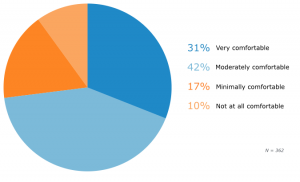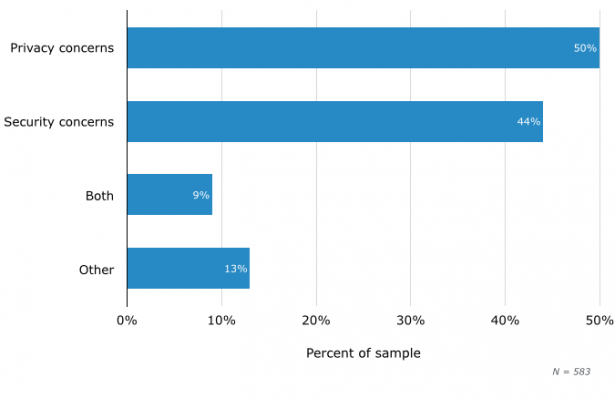Nearly 75% of Patients Comfortable with State HIE Systems
 Nearly three-quarters (73%) of patients feel “very” or “moderately comfortable” with an electronic version of their health records being immediately accessible online by any authorized health care provider in their state, says a new survey from Software Advice.
Nearly three-quarters (73%) of patients feel “very” or “moderately comfortable” with an electronic version of their health records being immediately accessible online by any authorized health care provider in their state, says a new survey from Software Advice.
The survey polled 583 U.S. health consumers and interviewed experts to understand patient support for interoperability, their perceptions of record sharing and Health Information Exchange (HIE) systems.
For interoperability advocates, the news on state HIE support is excellent: It shows that most patients surveyed see the value in increased data accessibility. Patient sentiment on HIEs is also a good indicator for patient sentiment on interoperability, since both involve supporting connected healthcare IT, according to the survey.
Under the Health Information Technology for Economic and Clinical Health (HITECH) Act of 2009, Congress established a grant program to encourage states to fund and operate their own HIE systems. HIMSS defines HIEs as the electronic exchange of health-related data and the organizations dedicated to the secure exchange of health-related data, and describes them as “critical for successful healthcare reform, enabling interoperability and meaningful use of health IT.”
 However, 27% of patients are still “minimally” or “not at all comfortable” with a statewide HIE-type system, the report said. Those patients’ greatest concerns were:
However, 27% of patients are still “minimally” or “not at all comfortable” with a statewide HIE-type system, the report said. Those patients’ greatest concerns were:
- Potential privacy violations (50%) – when patients’ health information is exposed to unauthorized parties, such as a staff member not involved with that patient’s care.
- Potential data security breaches (44%) – when cyber-attackers hack their way into an HIE to obtain health information for medical ID theft or prescription fraud.
The difference between these concerns is subtle, but significant.
“Of course, patients are not a monolithic group, and we certainly heard from some patients that are uncomfortable with the electronic exchange of their records,” said Gaby Loria, a health IT market researcher for Software Advice. “Among those respondents, privacy and security concerns kept them from embracing the idea. This wasn’t a big surprise for us, as we observed similar fears in our recently published report on HIPAA breaches. However, there are several ways physicians can talk to their patients to help them understand why EHR interoperability is becoming such an industry-wide priority.”
Physicians thinking about joining a state HIE or buying an EHR system that could support interoperability can do the following to help the interoperability conversation go more smoothly:
- Acknowledge privacy and security fears, and address them honestly.
- Remind patients that electronic records are typically more secure than paper-based records.
- Talk to patients about the policies and technologies safeguarding patient information.
Nearly three out of four patients surveyed were unaware whether their state operates an HIE, so building awareness and increasing user base and participation is key for healthcare organizations, the report said.